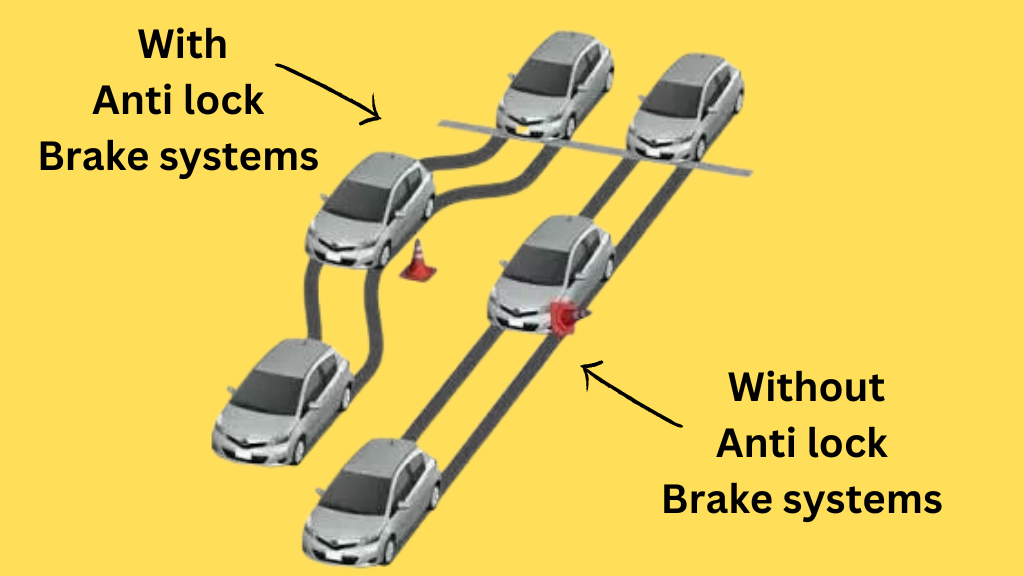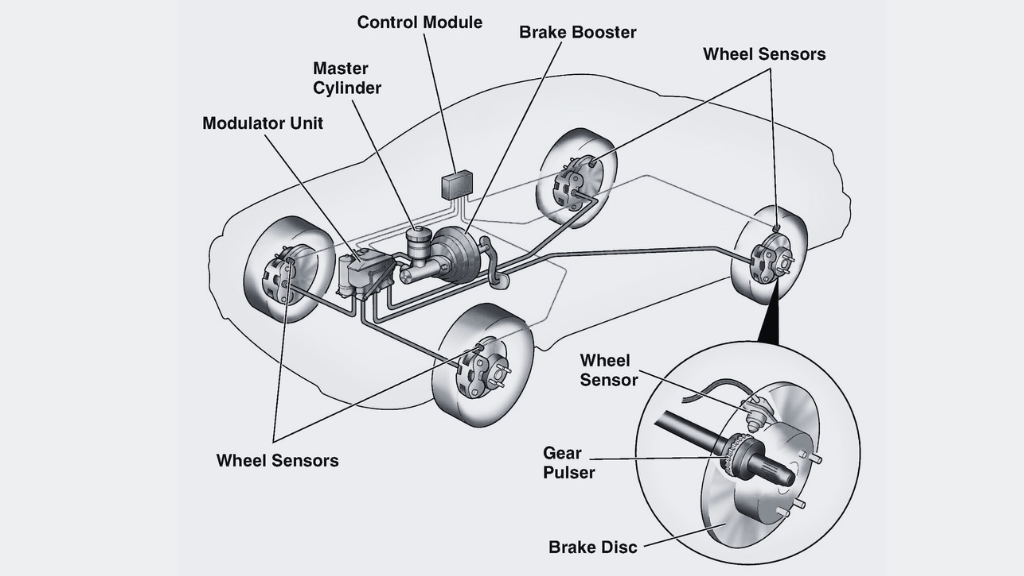Anti-lock brake systems (ABS) have become a standard feature in modern automobiles. ABS is an advanced safety system that prevents the wheels from locking up during hard braking, thereby allowing the driver to maintain steering control and avoid accidents. In this article, we will provide a comprehensive overview of ABS, including its functions, principles, and benefits.
Guide on Objection Detection: Everything you Need to Know
Understanding Anti-Lock Brake Systems
ABS is an automated system that runs on the principles of threshold braking and cadence braking. It uses sensors to detect wheel speed and applies the necessary torque to maintain optimum slip ratio. The slip ratio is the difference between the vehicle speed and the wheel rotation speed. ABS is designed to prevent the wheels from locking up during hard braking, which can cause the vehicle to skid and lose control.

How does the Anti-Lock Brake System Work?
ABS works by monitoring the wheel speed and applying the brakes in a way that prevents the wheels from locking up. When the driver applies the brakes, the ABS controller reduces the brake pressure on any wheel that is about to lock up. This allows the wheel to continue rotating and maintain traction with the road surface. The ABS controller then reapplies the brake pressure once the wheel speed has decreased to a safe level. This process is repeated continuously until the vehicle comes to a stop.
What is Named Entity Recognition and its Objective
Benefits of ABS
- ABS offers several benefits to drivers, including improved vehicle control and reduced stopping distance on slippery and dry surfaces.
- ABS also minimizes the risk of skidding and loss of control during hard braking, which can be especially important in emergency situations.
- Additionally, ABS can improve vehicle stability and prevent rollovers in certain situations.
Limitations of ABS
- While ABS is an effective safety system, it does have some limitations.
- On loose surfaces like gravel or snow-covered pavement, ABS can significantly increase braking distance, although it still improves vehicle control.
- ABS can also be less effective on uneven or bumpy roads, as the system may not be able to detect wheel lockup accurately.
Types of ABS
There are two main types of ABS: four-channel and three-channel.
Four-channel ABS is the most common type and has a separate sensor and control valve for each wheel. This allows the system to adjust the brake pressure on each wheel independently, providing maximum control and stability.
Three-channel ABS, on the other hand, has one sensor and control valve for each of the front wheels and a single control valve for the rear wheels. This type of ABS is less expensive but provides less control and stability than four-channel ABS.
Maintenance of ABS

Like any other safety system, ABS requires regular maintenance to ensure that it is functioning properly. The ABS system should be inspected and tested at least once a year, and any problems should be addressed immediately. The brake fluid should also be checked regularly and replaced as needed, as contaminated or degraded brake fluid can affect the performance of the ABS system.
Conclusion
ABS is an essential safety feature that has become a standard in modern automobiles. ABS prevents the wheels from locking up during hard braking, allowing the driver to maintain steering control and avoid accidents. ABS offers several benefits, including improved vehicle control, reduced stopping distance, and minimized risk of skidding and loss of control. However, ABS does have some limitations, and drivers should be aware of these limitations when driving on certain road surfaces. Overall, ABS is an important safety system that can help prevent accidents and save lives.
What is ABS and how does it works?
ABS works by monitoring the wheel speed and applying the brakes in a way that prevents the wheels from locking up. When the driver applies the brakes, the ABS controller reduces the brake pressure on any wheel that is about to lock up. This allows the wheel to continue rotating and maintain traction with the road surface.

















